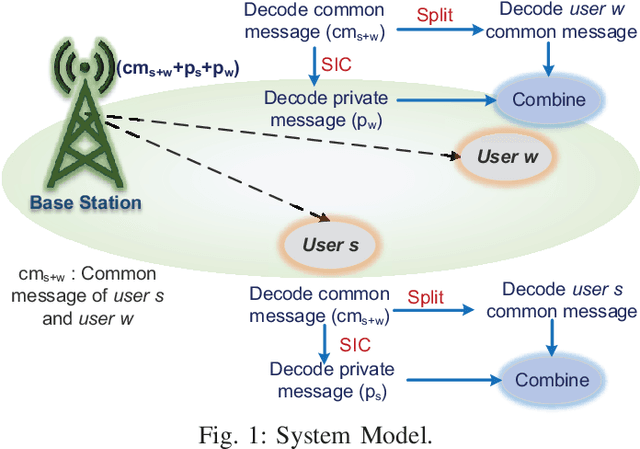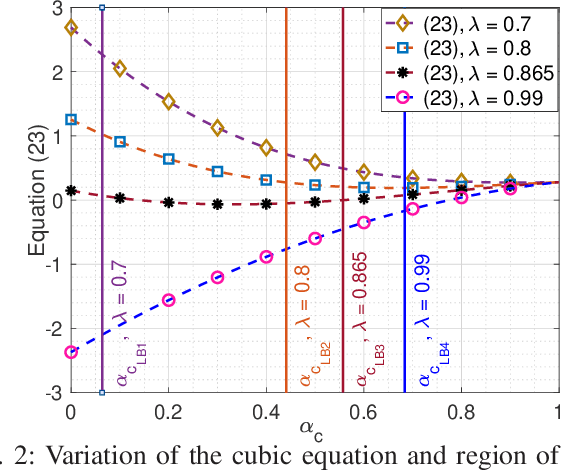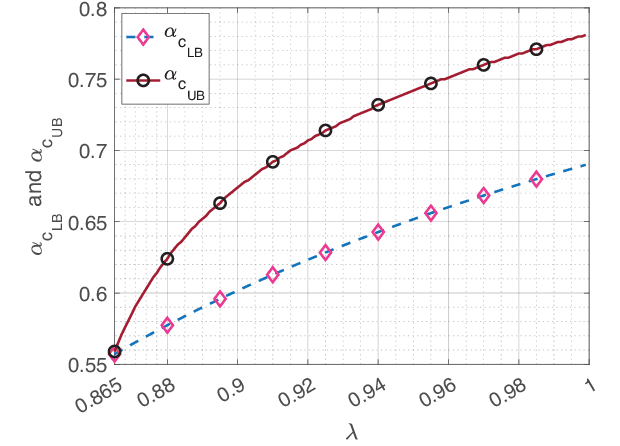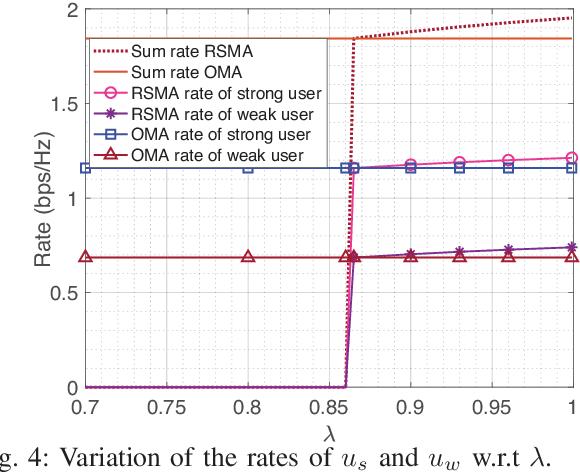Bounds on Power and Common Message Fractions for RSMA with Imperfect SIC
Paper and Code
Mar 05, 2022



Rate-Splitting multiple access (RSMA) has emerged as a key enabler to improve the performance of the beyond fifth-generation (5G) cellular networks. The existing RSMA literature has typically considered the sum-rate of the users to evaluate the performance of RSMA. However, it has been shown in the existing works that maximizing sum-rate can result in asymmetric user performance. It can result in a significant enhancement of one user rate at the cost of the other RSMA user. Further, imperfections can reduce the performance of successive interference cancellation (SIC)-based RSMA. Therefore, in this paper, we consider the imperfection in successive interference cancellation (SIC) and derive suitable bounds on fractions of the power of common and private messages and the fraction of common message intended for each user in an RSMA pair such that their individual RSMA rates are greater than their respective OMA rates. Through simulations, we validate the derived bounds and show that the individual RSMA rates of users can be greater than their respective OMA rates by selecting the parameters within the derived bounds.
 Add to Chrome
Add to Chrome Add to Firefox
Add to Firefox Add to Edge
Add to Edge